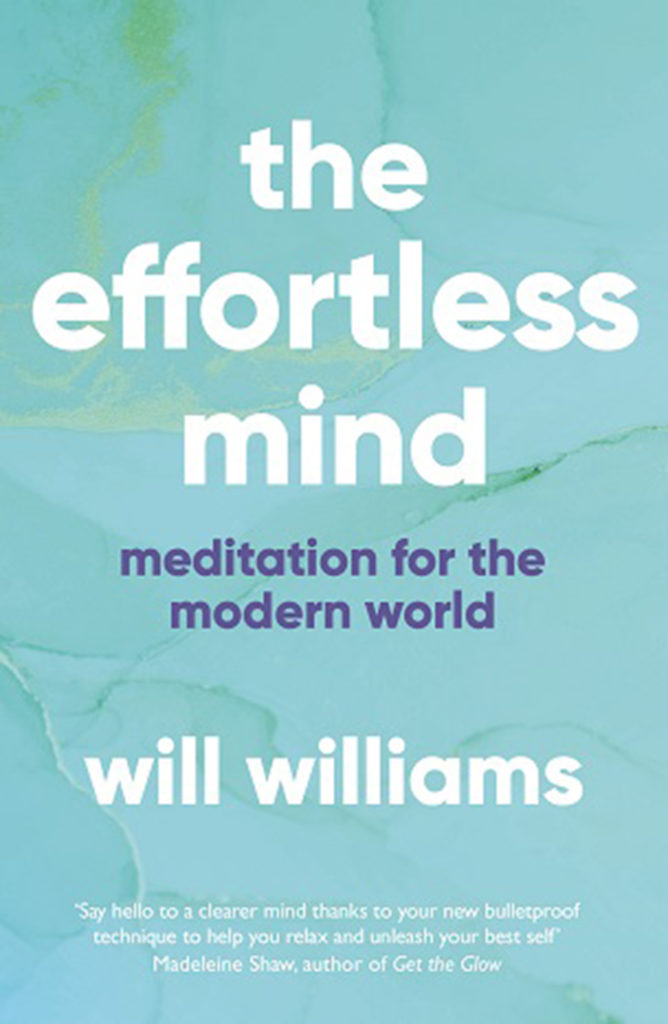Could Meditation Stop You Overeating?

by Will Williams, author of The Effortless Mind
How can meditation help with overeating? It all comes down to stress – the increasing demands of living in our modern world makes two-thirds of people overeat. When the body’s stress response is regularly activated, our adrenal glands release the stress hormone cortisol, which increases appetite and the motivation to eat. Additionally, stressed people also lose sleep, exercise less and drink more alcohol, all of which can contribute to excess weight.
The style of meditation I teach, Beeja meditation, which involves effortless repetition of a personalised sound which the teacher gives you, helps us to normalise weight by counteracting the stress response and reducing cortisol levels (the stress hormone) by an average of 33%. When we’re more relaxed, it means that our body no longer craves fat and sugar to try and deal with the hyperactivity in the nervous system caused by stress. It is also really useful at helping us to process past and present emotions, which stops us from feeling the need to comfort eat in an effort to soothe ourselves.
With regular meditation, our overactive stress response dissipates, we find ourselves graduating towards more healthy patterns of eating, and our digestive system also becomes stronger because it’s not subject to such frequent stress shutdown. This means we are better able to digest and absorb the nutrients in our food. As a result, our diet becomes spontaneously more balanced, as we are now taking in a broader spectrum of nutrients, and we find ourselves much more capable of self-restraint.
In addition, we find ourselves more connected to our bodies, and we intuitively eat better food and, in healthier quantities than we did before. We don’t even have to try, it just happens as a by-product of being in a more balanced state.
Meditation also gives you much more physical and mental energy, thereby making the idea of going for a run, or down to the gym less daunting. By balancing our nervous systems and releasing stress, we find ourselves more inspired and more motivated to embrace a more positive way of being. As the icing on the cake, meditation improves both the quality and quantity of our sleep – in those who need it – with an average 42% reduction in sleep disorders. This plays an additionally significant role in helping people maintain a healthy balance of hunger hormones so that we only crave food when we really need it.
The Effortless Mind by Will Williams is published 2nd May, £9.99 from Simon & Schuster and is available on Amazon here. For information about meditation classes visit beejameditation.com.









